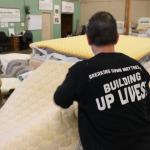Fear is an intrinsic part of the human experience. With over two thousand known phobias, from the peculiar (Novercaphobia, the fear of your stepmother) to the more common (Claustrophobia, the fear of confined spaces), it seems there’s a name for nearly every fear we can imagine. Yet, when we look at the fears of babies, we find that they start with just two: the fear of falling and the fear of loud noises. Everything else, it appears, is learned.
Discovering My Fears
Recently, I ventured into my crawl space and attic, which led me to confront my own fears. I discovered I might be grappling with Stenophobia (fear of narrow places) or perhaps Claustrophobia. I can’t pinpoint where these fears originated, but they feel very real. I recall a childhood incident where I was locked in the trunk of my mom’s 1969 Oldsmobile, thanks to a dare from my little brother. That experience likely contributed to my discomfort in tight spaces.
Beyond those fears, one of my most significant struggles is the fear of failure. As a writer, this fear looms large. Questions flood my mind: “Will anyone read this? Will they like it? Am I using the right voice?” The fear of failure can be paralyzing, lurking at every corner of the writing journey.
The Roots of Our Fears
Our learned fears often stem from moments of disappointment—letting someone down or failing to meet expectations set by parents, coaches, or teachers. These moments can haunt us, creating a narrative of inadequacy. I can easily recall several events in my life that stand as markers of failure: the fence that fell, the train that derailed, the cork that popped unexpectedly. Each instance feels like a reminder of my shortcomings, leading me to believe I’ve disappointed not just others, but God and myself as well.
However, Eric Parks, in his teachings on failure, offers a refreshing perspective: “You are not defined by your mistakes—or series of mistakes. That’s not who you are in God’s eyes.” This statement resonates deeply. The battle against failure is less about the reality of our mistakes and more about our perception of them.
Renewing Our Minds
This isn’t just empty philosophy; it’s a profound truth. The enemy loves to whisper reminders of our failures, replaying the tapes of disappointment in our minds. Yet, each day presents a new opportunity for renewal. As Romans 12:2 reminds us, we can be “transformed by the renewing of our minds.” While I may not excel in every area—whether it’s dunking a basketball or starting a fire like Bear Grylls—I refuse to let my limitations define me. Just because I cannot do something well does not make me a failure.
What Are You Afraid Of?
This leads us to a critical question: What are you afraid of? Are your fears holding you back from pursuing your dreams or living fully?
Consider the wisdom found in Scripture. Philippians 4:8 encourages us to focus on what is true, honorable, just, pure, lovely, and commendable. By shifting our mindset to these positive attributes, we can begin to dismantle the strongholds that fear creates in our lives.
2 Corinthians 4:16 reassures us that even as our outer selves may face struggles, our inner selves are being renewed daily. Ephesians 4:23 reminds us to be renewed in the spirit of our minds, emphasizing the importance of mental and spiritual transformation.
Moreover, 2 Corinthians 10:4-5 tells us that our weapons are not of the flesh but possess divine power to destroy strongholds. We can take every thought captive, aligning it with the knowledge of Christ.
Philippians 4:6-7 provides comfort: “Do not be anxious about anything, but in everything by prayer and supplication with thanksgiving let your requests be made known to God.” This promise assures us that the peace of God will guard our hearts and minds.
Setting Our Minds on Higher Things
As we navigate our fears, Colossians 3:2 encourages us to set our minds on things above, rather than on earthly concerns. By focusing on our faith and the promises of God, we can find the strength to confront our fears and embrace the life He has called us to live.
Fear may be a common thread in our lives, but it does not have to define us. Through faith, renewal, and a shift in perspective, we can overcome our fears and step boldly into the future God has planned for us. So, take a moment to reflect: What are you afraid of, and how can you begin to confront that fear today?














